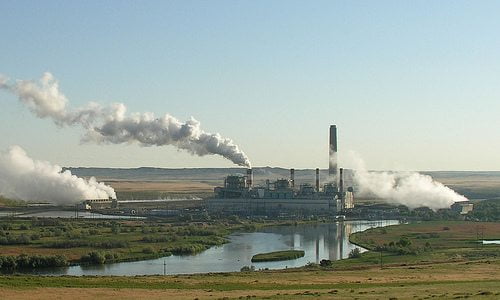

Energy
UK government loaned £1.7bn to fossil fuel projects abroad since 2010
Despite publicly criticising fossil fuel subsidies, research has revealed that the UK government has pledged £1.7 billion in financial support to dirty energy projects aboard in the last five years.
Analysis by environmental campaign group Greenpeace, discovered that the total support for fossil fuel industries amounts to £1.76 billion-worth of Export Credit Guarantees between 2010-2014, which is underwritten by taxpayer’s money. The last financial year in particular saw the government supporting fossil fuels, with over just over £1 billion being loaned in those 12 months alone.
At a UN climate summit Prime Minister David Cameron called for an end to fossil fuel subsidies. He said, “We need to give business the certainty it needs to invest in low carbon. That means fighting against the economically and environmentally perverse fossil fuel subsides, which distort free markets and rip off taxpayers.”
The 2010 coalition agreement also saw the government pledging to focus on cleaner energy sources. It states, “We will ensure that UK Trade and Investment and the Export Credit Guarantee Department become champions for British companies that develop and export innovative and green technologies, instead of supporting investment in dirty fossil fuel energy production. ”
Greenpeace explains that the UK Export Finance agency (UKEF) is authorised by the government to decide what to financially back, and the main instrument is the Export Credit Guarantee. Since the coalition came to power in 2010, UKEF has backed a range of overseas fossil fuel projects – from coal mining in Russia to oil and gas exploration in Brazil.
The biggest deal by UKEF was a £475 million loan to support the build of a petrochemical complex in Saudi Arabia by a UK construction firm.
In response to the criticism, UKEF has stated that it reviews the environmental and social issues of a project before approving finance.
A spokesperson for the agency commented, “UKEF would take dirty fossil-fuel energy production to refer to projects producing pollution in excess of international environmental standards. UKEF adheres to the standards set out in the OECD Common Approaches and will normally refuse support for exports to projects that do not meet those standards.
“UKEF has an extensive programme of raising market awareness of its products and services to companies in the renewables sector.”
Photo: Greg Goebel via Flickr
Further reading:
UN climate summit: Cameron calls for end to fossil fuel subsidies and a strong climate deal in Paris
Church of England votes in favour of reviewing fossil fuel investments
Fossil fuel divestment campaign targets high street banks
EU climate commissioner calls for development banks to cut ties with fossil fuels
Norwegian pension fund divests from ‘financially worthless’ fossil fuel firms


 Environment11 months ago
Environment11 months agoAre Polymer Banknotes: an Eco-Friendly Trend or a Groundswell?

 Features10 months ago
Features10 months agoEco-Friendly Cryptocurrencies: Sustainable Investment Choices

 Features11 months ago
Features11 months agoEco-Friendly Crypto Traders Must Find the Right Exchange

 Energy10 months ago
Energy10 months agoThe Growing Role of Solar Panels in Ireland’s Energy Future




























